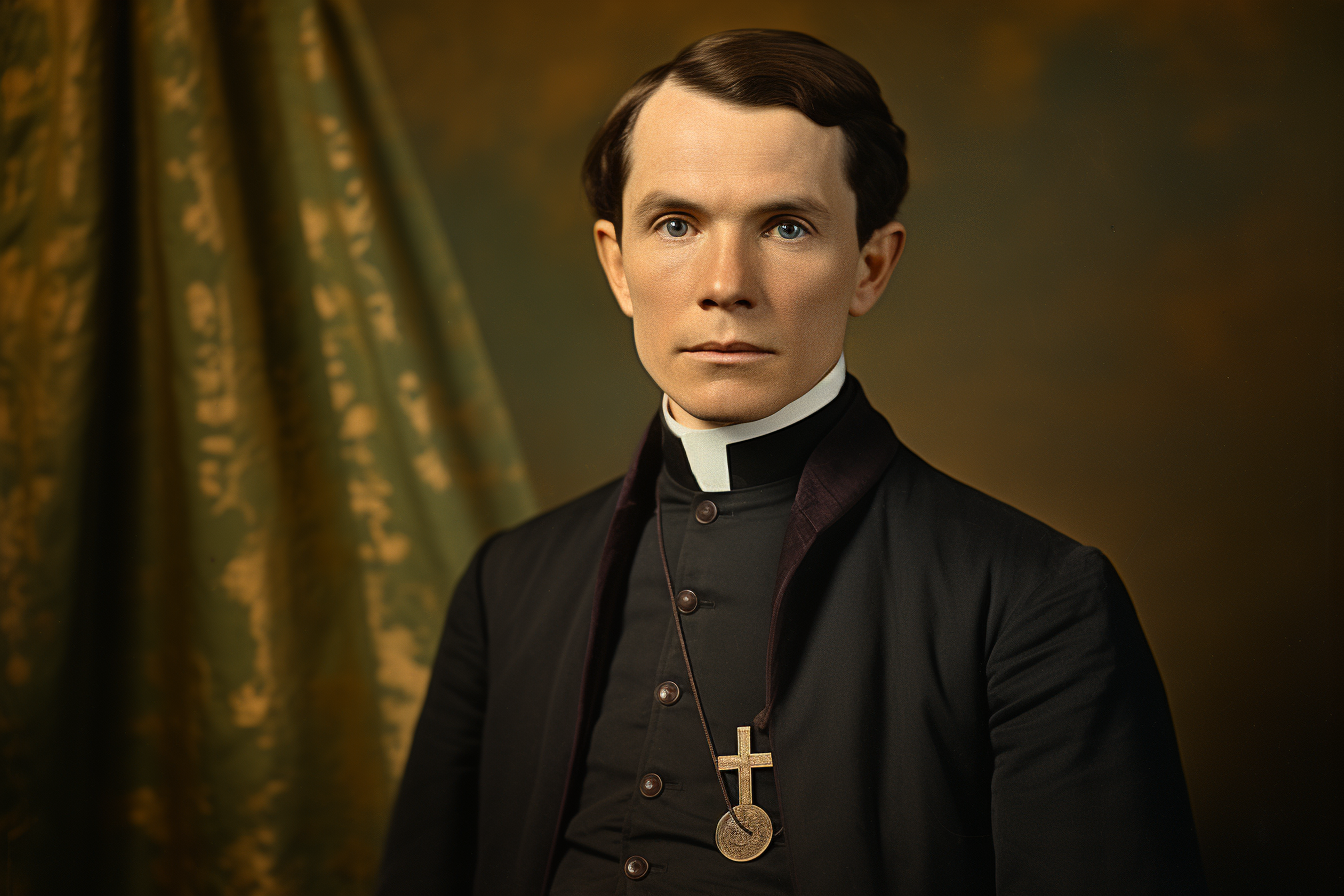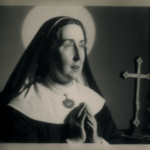
St. John Neumann
Saint John Neumann
When They Lived:
St. John Neumann, also known as St. John Nepomucene Neumann, lived from March 28, 1811, to January 5, 1860.
Where They Lived:
St. John Neumann lived in various locations, but he is most famously associated with the United States. He spent a significant part of his life in the United States, particularly in the state of Pennsylvania. He served as the Bishop of Philadelphia and is often remembered for his contributions to the Catholic Church in the country.
Notable World Events During Their Life:
- Industrial Revolution (18th-19th century): St. John Neumann’s life coincided with the peak of the Industrial Revolution. This period brought about significant technological advancements, urbanization, and social changes.
- California Gold Rush (1848-1855): The discovery of gold in California in 1848 triggered a massive influx of people seeking their fortunes.
- Publication of Charles Darwin’s “On the Origin of Species” (1859): Just a year before St. John Neumann’s death, Charles Darwin published his groundbreaking work on evolution.
- Crimean War (1853-1856): St. John Neumann’s lifetime also witnessed the Crimean War, a conflict involving various European powers.
- Telegraph and Morse Code (1830s-1840s): Samuel Morse developed the telegraph and Morse code, revolutionizing long-distance communication.
- Opening of Japan (1853-1854): Commodore Matthew Perry’s expedition to Japan led to the opening of the previously isolated nation to international trade and influence.
Their Patronage:
St. John Neumann is the patron saint of a variety of groups and causes, including Catholic education, immigrants, and sick children.
His dedication to education and his efforts to establish a strong Catholic school system earned him the patronage of educational institutions and educators. Due to his own experience as an immigrant from Bohemia (modern-day Czech Republic), he became a symbol of hope and support for immigrants in the United States. Additionally, his care for the health and well-being of children, especially during a cholera epidemic, led to his association with the protection of sick children.</p
Early Life
John Neumann was born on the 28th of March, 1811, in Prachatice, Bohemia (now called the Czech Republic). Out of the six children his parents had, he was the third. In 1823, He wrote and passed with distinction the entrance exam into a school in Budweis run by the Piarist Fathers.
Education
In 1831, Neumann joined the Diocese of Budweis seminary to study theology. During his second year of study at the seminary, Neumann read reports from the Leopoldine Society requesting more priests in the United States, particularly to attend to the German-speaking communities residing there.
These reports, along with a spirited lecture given by the seminary director about Apostle Paul’s missionary activities, gave him all the encouragement he needed to leave for America. He planned to go there and offer spiritual support to European immigrants living in America.
Dedication and Devotion
In June 1836, Neumann became a priest, and his ordination was carried out by John Dubois, the bishop of New York. Dubois then assigned Neumann to assist Father Alexander Pax in offering pastoral services to the German immigrants residing in the Buffalo area. Dubois also directed Neumann to make a stop at Rochester before moving on to Buffalo.
The German Catholics warmly welcomed his arrival in Rochester. Some of the parishioners even planned to request that Bishop Dubois assign Neumann to Rochester permanently.
By January 1842, John Neumann had joined the Redemptorists as a result of his desire to live in a religious community that truly matched his missionary vocation.
Even though Neumann’s primary missions were North Bush, Lancaster, and Williamsburg, soon he was administering Tonawanda, Transit,Pendleton, Batavia, and Sheldon. For more than four years, Brother Neumann traveled from house to house, station to station, in the cold winter and the hot summer, baptizing newborns, blessing the dying, visiting the sick, and encouraging faith in backsliding members.
Legacy
He was a diligent and determined missionary dedicated to fulfilling his vocation no matter the circumstances. After assiduously working as the vice-provincial superior of the Redemptorists from 1846 to 1849, he took over the role of parish priest for St. Alphonsus Church in Baltimore. In 1852, he was made the bishop of Philadelphia and consecrated by Francis Kenrick, the Archbishop of Baltimore.
Bishop John Neumann had a substantial effect on religious life in America. He founded Catholic schools and encouraged devotion to the Eucharist. He was also the founder of the ‘Third Order of Saint Francis of Glen Riddle’ religious institute. He is also regarded by the School Sisters of Notre Dame as their secondary founder and their “Father in America.”
Bishop John Neumann built over 70 churches, several orphanages, and hospitals in just seven years. Sadly, he passed away suddenly at the age of 48 on January 5, 1860. His death was caused by a heart attack.
Death and Canonization
St. John Neumann was beatified on October 13, 1963, and canonized on June 19, 1977. The miracle cited in support of his beatification is the case of Eva Benassi, an eleven-year-old who was diagnosed with acute diffuse peritonitis. Eva woke up one morning, totally cured of the disease, after praying to Neumann for intercession.
His remains are interred at St. Peter the Apostle Church in Philadelphia.
5 Interesting Facts About St. John Neumann
- Did you know St. Neumann was fluent in several languages, including
German, Italian, Czech, Latin, French, Greek, and English? - St. John Neumann was the first ecclesiastic to set up a diocesan
school system in the United States. - Did you know St. Neumann is the first and presently the only
an American male citizen to be canonized? - St. Neumann is called upon as a patron of sick children and of
immigrants. - Saint John Neumann is the Patron Saint of educators and teachers.
Prayer to St. John Neumann
O Saint John Neumann, your ardent desire to bring all souls to Christ impelled you to leave home and country; teach us to live worthily in the spirit of our baptism, which makes us all children of the one Heavenly Father and brothers of Jesus Christ, the firstborn of the family of God. Obtain for us that complete dedication in the service of the needy, the weak, the afflicted, and the abandoned that so characterized your life. Help us to walk perseveringly in the difficult and, at times, painful paths of duty, strengthened by the Body and Blood of our Savior and under the watchful protection of Mary, our Mother. May death still find us on the sure road to our Father’s house with the light of living Faith in our hearts. Amen.
Source:[https://www.catholicculture.org/culture/liturgicalyear/prayers/view.cfm?id=984]{.ul}



